The finance sector, known for its dynamic and ever-evolving nature, is currently undergoing a significant transformation in its recruitment practices.
This shift is driven by technological advancements, changes in workforce dynamics, and the increasing importance of diversity and soft skills. As we move into a new era of financial recruitment, it's crucial for both recruiters and candidates to stay abreast of these emerging trends.
1. The AI Revolution in Recruitment
Artificial Intelligence (AI) and Machine Learning (ML) are no longer just buzzwords in the finance sector; they're becoming integral parts of the recruitment process. AI-driven algorithms help sort through resumes, predict candidate success, and even assist in initial screening processes. This technology not only streamlines the hiring process but also helps reduce unconscious bias, leading to more diverse and inclusive workplaces.
2. Embracing the Global Talent Pool
The rise of remote work has opened doors to a global talent pool. Financial institutions are no longer limited by geographical constraints and can now access the best talent from around the world. This shift requires a new approach to interviewing, onboarding, and managing remote teams, emphasizing the importance of digital proficiency and cross-cultural communication skills.
3. Diversity and Inclusion at the Forefront
There's a growing emphasis on diversity and inclusion in finance recruitment. Companies are actively seeking candidates from underrepresented groups to build diverse teams that reflect their customer base and bring a variety of perspectives to the table. This trend is not just about filling quotas; it's about enriching the workplace with diverse experiences and viewpoints.
4. The Soft Skills Surge
Technical skills alone are no longer sufficient in today’s finance sector. There’s an increasing demand for soft skills like communication, adaptability, problem-solving, and emotional intelligence. These skills are crucial for navigating the complexities of the financial world and for fostering a collaborative and innovative work environment.
5. Rise of Specialized Recruitment Agencies
As the finance sector becomes more specialized, there's a growing reliance on recruitment agencies that offer niche expertise. These agencies have a deeper understanding of the specific skills and experiences required in various finance roles, making them invaluable partners in the recruitment process.
6. Leveraging Data Analytics
Data-driven strategies are revolutionizing finance recruitment. Analytics are used to identify the best sources of talent, evaluate the effectiveness of recruitment methods, and even predict the long-term success of candidates. This approach ensures a more efficient and targeted recruitment process.
7. Continuous Learning and Development
The fast-paced nature of the finance sector demands a workforce that is committed to continuous learning and professional development. Candidates who demonstrate a willingness to grow and adapt are highly valued, as they're more likely to keep pace with the changing financial landscape.
8. Regulatory Compliance Know-How
With ever-changing financial regulations, there's a heightened demand for professionals who are well-versed in compliance standards. This expertise is crucial for mitigating risks and ensuring that financial institutions operate within legal frameworks.
9. FinTech Expertise in Demand
The integration of Financial Technology (FinTech) into traditional finance roles has created a demand for professionals skilled in blockchain, cryptocurrencies, digital banking, and more. Candidates with FinTech expertise are highly sought after as they bring innovative approaches to traditional financial practices.
10. Social Media as a Recruitment Tool
Social media platforms are increasingly being used for recruitment marketing and candidate sourcing. LinkedIn, in particular, has become a valuable tool for identifying potential candidates and for candidates to showcase their skills and professional achievements.
The landscape of finance recruitment is changing rapidly, and both recruiters and candidates need to adapt to these emerging trends. By embracing new technologies, valuing diversity and soft skills, and staying ahead of regulatory changes, finance professionals can ensure they remain competitive and relevant in this dynamic industry.
Based on the information gathered from various sources, here's a statistics of the key trends in finance recruitment:
High Demand for Certain Finance Roles: Roles such as finance managers, compliance officers, financial analysts, accountants, and auditors are in high demand. This trend indicates a robust market for professionals with these skill sets.
Challenges in Finding Qualified Talent: The finance sector, particularly accounting, is experiencing difficulties in recruiting qualified candidates. A significant 89% of clients reported being impacted by the inability to find qualified accounting and finance candidates. This challenge is compounded by a growing skills gap and an increase in retirements, particularly among the Baby Boomer generation, who make up a substantial portion of the CPA workforce.
Burnout and Stress in the Profession: There is a notable increase in burnout and chronic workplace stress among accountants. This not only affects performance but also contributes to the difficulty in retaining workers and attracting new ones to the profession. Such conditions could further exacerbate the skills gap in accounting and finance.
Decline in Accounting Graduates: The number of students completing accounting degrees in the U.S. has been declining, which is leading to fewer CPA-certified professionals entering the labor force. This decrease in new entrants to the profession is likely to intensify the existing talent shortage.
Remote Work as a Key Factor: Remote work has become a significant deciding factor for candidates in the finance sector. An internal survey revealed that candidates prioritize remote work options over other factors, including higher pay. This shift in candidate preferences highlights a potential disconnect between employer and employee expectations, as many employers still prefer on-site work.
Use of AI and Automation: While automation and AI are increasingly used in the finance sector, they are not expected to entirely replace the need for skilled professionals. AI can handle tasks like data input and transaction sorting, but higher-level roles still require human expertise.
Recruitment Trends in Financial Services: The BAI report suggests that there are overarching trends in financial services recruitment, though specific details were not provided in the extract. This indicates an evolving recruitment landscape that may encompass a variety of strategies and priorities.
These trends paint a picture of a finance recruitment landscape that is grappling with challenges such as skill shortages, changing candidate preferences, and the need for adaptation to new technologies and work models. To navigate these challenges, finance organizations and professionals need to stay adaptable, embrace new technologies, and consider shifting workforce preferences and expectations.
References





